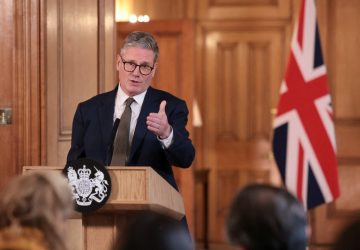Shehbaz Sharif was voted in, on Sunday, as Pakistan’s prime minister for a second time, presiding over a shaky alliance that has shut out followers of jailed opposition leader Imran Khan.
Newly sworn-in lawmakers in Pakistan’s National Assembly elected Sharif by 201 votes, three weeks after the national elections were marred by widespread allegations of rigging.
Omar Ayub Khan stood against Sharif as the candidate of choice for MPs loyal to Khan, and gained 92 votes.
“No one has won a majority. It’s a split mandate. And it is the democratic way that if it’s a split mandate, then the like-minded parties may form a coalition government,” Sharif told parliament after being voted in.
The Sharif family’s Pakistan Muslim League-Nawaz (PML-N) party allied with their historic rivals the Pakistan Peoples Party (PPP), as well as several smaller factions, to keep Khan’s candidates out.
In return, the PPP – a dynastic party ruled by the family of slain ex-premier Benazir Bhutto – have been promised the office of president for Bhutto’s widower, Asif Ali Zardari.
Former Prime Minister Khan was jailed in the run-up to the February 8 polls and barred from contesting, while his Pakistan Tehreek-e-Insaf (PTI) party was targeted by a crackdown of arrests and censorship.
PTI candidates were forced to run as independents, but nonetheless secured more seats than any other party.
However, they fell short of the figures needed to form a government, paving the way for Sharif’s return.
Sharif, 72, first served as prime minister in 2022 at the head of a strikingly similar alliance which ousted ex-cricket star Khan.
Similarly to his first tenure, Sharif will face an overlapping trio of crises plaguing the nation of more than 240 million citizens.
With AFP





